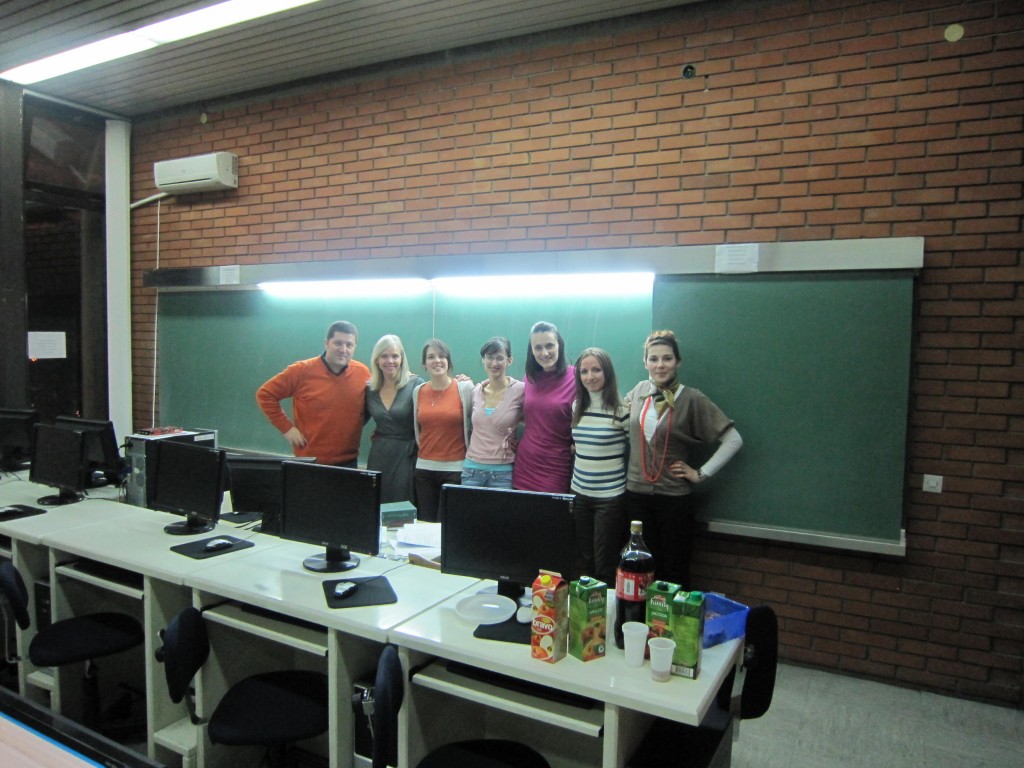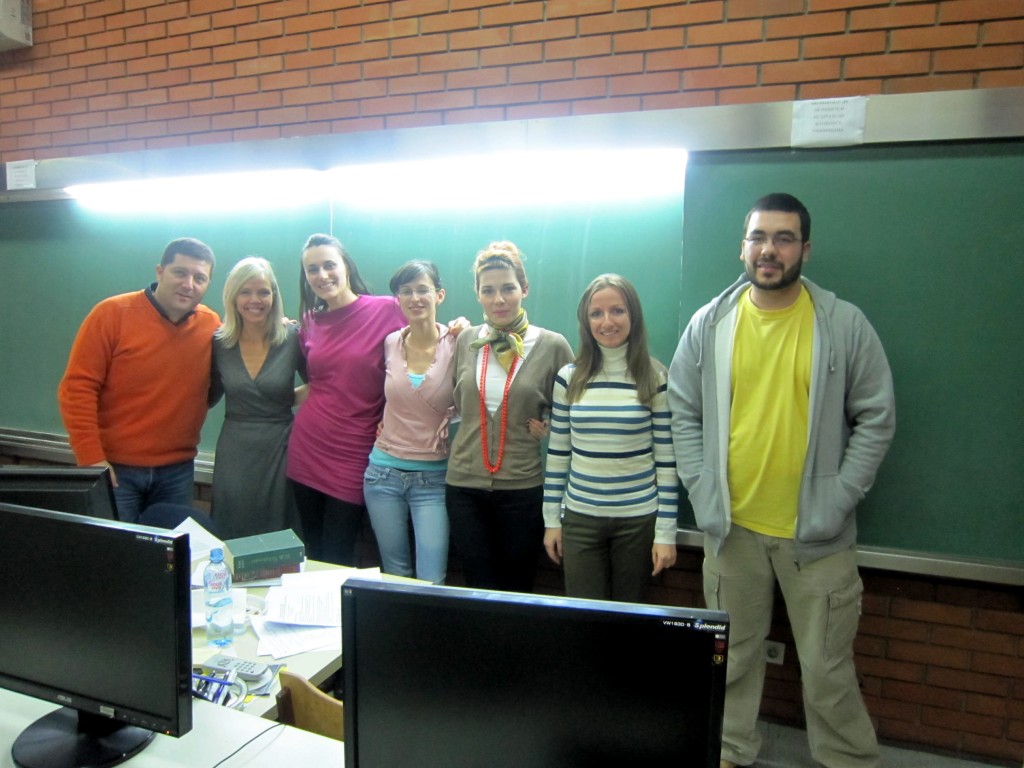Boduci Pesnići!: Translating the Untranslatable Barbaric Yawp with Dragan Purešić
Though the poet Walt Whitman never learned to speak or write in anything besides English, he loved the sounds of other languages. He announces himself no ‘dainty dolce affettuoso’; his ‘vivas’ are blown through his ’embouchures’ from ‘Paumanok’ to ‘Mannahatta.’ Though he claims that the United States have veins “full of poetical stuff,” he gave a French titles to one of his most important clusters of the third edition (“Enfans d’Adam”). Whitman encouraged his readers to think globally by integrating what must have been exotic foreign phrases in nineteenth-century America, from ‘tabounschiks’ to ‘teokalllises.’
Hey Walt! –did you ever consider how fluid and strong and beautiful all of these words would sound… in Serbian?
Sati protiču dugi, mučni i teški,
Sati u suton, kada se povlačim na neko osamljeno i
Pusto mjesto, sjedam, naslanjajući lice na ruke…
That is Elma Porobic’s stunning translation of the first lines of Calamus 9. Those of you who can read Serbian will not just note her sensitive treatment of Whitman’s language, but her ear for his music. Elma is one of my six students in “Walt Whitman: The Global Perspective”, and one of three that have chosen to absorb, translate, and interpret Calamus 9 as her final project. Sanja Stanimirovic offers a different perspective on Whitman’s emotional opening:
Sati teku dugi, bolni i tegobni,
Sati u sumrak, kada se povlačim na neko samotno mesto, retko pohođeno, sedam i zarivam
lice u šake…
And then we have Bojana Acamovic’s nuanced reading:
Sati teku dugi, bolni, nesrećni,
Sati sutona, kada se povlačim na usamljeno i pusto mesto, kada sedam, spuštam lice u šake…
Indira Janic brings another level of meaning to Calamus 22 (later “To a Stranger”) by interpreting him using the Cyrillic alphabet:
Странче у пролазу! Ти не знаш колико те чежљиво гледам…
Neda Kosoric has diligently labored to resolve interesting questions regarding the use of gender in Serbian, in her translation of Calamus 11:
…i njegova ruka lagano prebacena preko mojih grudi,
i te noci ja bio sam srecan.
And Josip brings passion and intensity to Calamus 6 as he continues to try to wrestle down a Serbian word for a distinctively Whitmanic term:
Ne s bilo kim niti sa svima, O adhesiveness! O bȉlo mog života!
Potrebno mi je da postojiš i prikazuješ se, više no u ovim pesmama.

Dragan Purešić,, Karen, Indra, Sanja, Neda, Bojana, and Elma: united we Whitmaniacs stand!
On Saturday 12 December, we were honored to welcome the esteemed translator Dragan Purešić to our classroom at the University of Novi Sad. In addition to his crucial contributions to the success of the Serbian Book Market Project (see http://www.ceebp.org/book-market.htm for more info), Dragan has published noteworthy translations of the works of William Blake (Belgrade: Plato, 2007) as well as Walt Whitman (Belgrade: Plato, 2008). He presented us with a memorable lecture on the art of translation, describing some of the challenges he faced when interpreting Whitman’s words for the Serbian people. “The poem is an artistic entity,” he reminded us. “The translator is both an artist and an artisan.” Quoting freely and fluidly from works as wide-ranging as Lessing’s “Laocoon” and “The Godfather Part III”, he charged us with the significance and the perils of our task at hand. And he inspired us. “Blessed be the messengers,” he said. Whitman sounds really good, really true and beautiful, in Serbian.

Ringed round by Dragans: Whitman's women (don't forget Indira, behind the lens!)
- Ringed round by Dragans: Whitman’s women (don’t forget Indira, behind the lens!)
Dragan then led a translation workshop (which was further enhanced by the contribution of Novi Sad faculty members Vladislava Gordic Petkovic, Ivana Djuric, and Aleksandra Izgarjan). We pored over Whitman’s language: what’s the connotative difference between being “content” and “happy”, as we see these terms used in Calamus 9 and 11? What is behind the unusual statement “I am to wait” at the end of Calamus 22, and how can one achieve that feeling in Serbian? And when Whitman asks, “I wonder if other men ever have the like” (Calamus 9), does the use of the idea of ‘mankind’ deny the poem’s true meaning or enhance its applicability? Dragan offered suggestions and asked thoughtful questions of all of us; all of us responded and questioned our own understandings of Whitman’s words and intentions.
We strolled out of Classroom 37 three hours later, with full hearts and minds. You see, Dragan knows Walt Whitman. He ‘gets’ the poet in a fluid and intuitive way, in addition to possessing a finessed scholarly knowledge of Whitman’s life and work. And Dragan communicated his love and understanding for Whitman to us with honesty and passion, encouraging and helping shape our responses to these elusive Calamus poems.
In a few weeks, you will be able to listen to my students’ final versions of their Calamus translations on our “video map” (just go to “Video Map” on top of our class website– http://unovisad.lookingforwhitman.org– and swing the pointer a bit east of Walt’s usual stomping-grounds). You, too, will be able to enjoy the benefits of Dragan’s sensitive tutelage– as channeled by this outstanding, unforgettable collective of new Serbian Whitmaniacs.
Hvala, Dragan! Vidimo se, Josip, Indira, Elma, Bojana, Sanja, Neda and faithful right-hand man Dragan!
…I ostavlja vama da dokazujete i određujete,
I glavne stvari očekuje od vas.
(the rousing challenge of “Poets to Come”, as delivered by Walt Whitman and Dragan Purešić)
